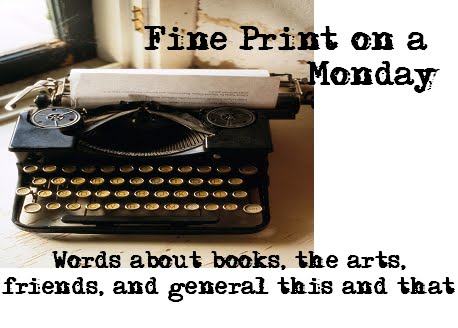If you searched for last week's post, you came up empty. To be honest, I am still working my way through this Alice Hoffman novel and haven't yet settled in on how I feel about it. Two stories, which will certainly intertwine at some point, focus attention in different directions, although there are parallel themes. Both Eddie and Coralie have peculiar relationships with their fathers. At first, Coralie's father appears overprotective, even smothering, but as her story evolves, she discovers that he may not be all that he seems. Eddie, on the other hand, leaves his distances himself from his deeply religious father'house to work for a man with questionable scruples. In doing so, Eddie turns his back on his religion, creating darkness between him and his father. At least that is what Eddie thinks.
Let me back up a little. Coralie's father runs a museum of oddities and he is prepping her to be a living mermaid. In his teens, Eddie worked for a man who sent young boys out to recover information on missing people, in whatever way they could. Eventually, Eddie becomes jaded by his life searching in and out of beer halls and brothels; after meeting a hardened photographer Eddie begins photographing the seamy side of life.
This is where I think the stories will begin to merge somehow. A young woman goes missing after the famous 1911 Triangle Shirtwaist Factory fire in New York. Eddie is hired to find the young girl for her distraught father. About the same time, while on one of her late night mermaid training swims, Coralie becomes entangled with the corpse of a girl; her father quickly hires a man to transport the body back to his workshop where he creates many of his museum exhibitions.
Right now, I can't say if this is a love it or leave it book for me. Hoffman's writing is mesmerizing and artful. The story makes me uncomfortable. At times I feel like I am peeping on the very private lives of people so flawed they will never find a place in my "normal" world. Should I pity them or should I admire the strength with which they move through life knowing they will always be dramatically different physically, emotionally intellectually and perhaps ethically? I'm not sure at all, but I will keep reading in hopes of finding that one line, or that one idea between lines that brings it home for me.
Thanks for stopping by.

